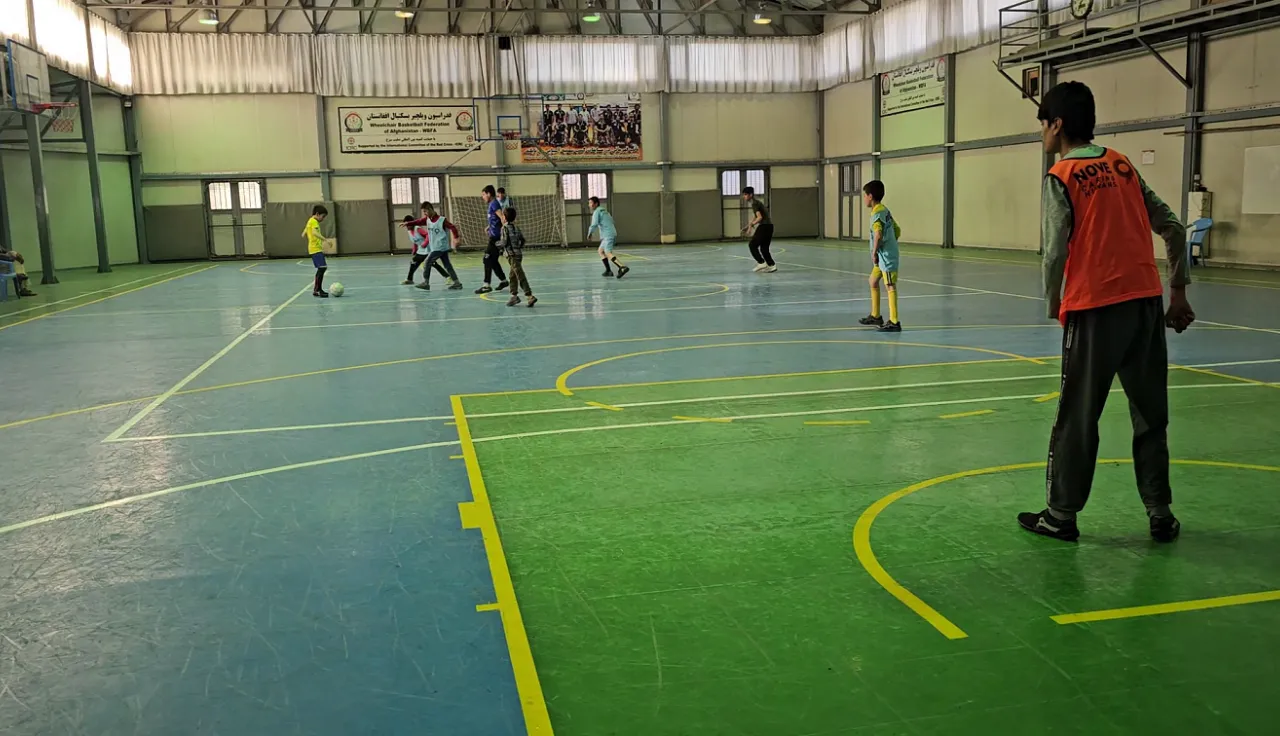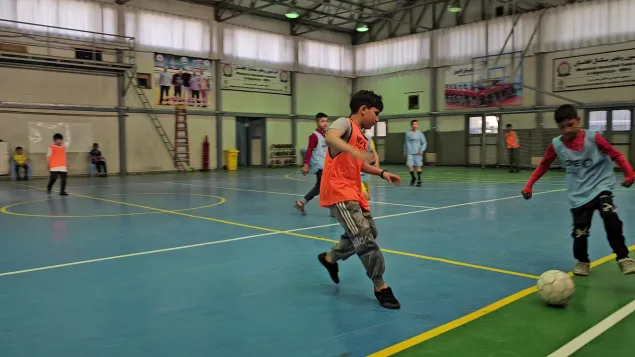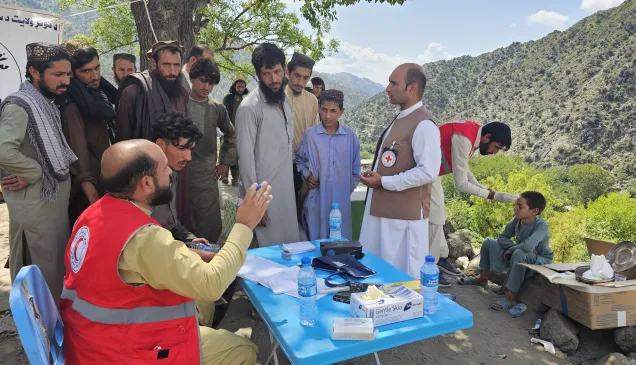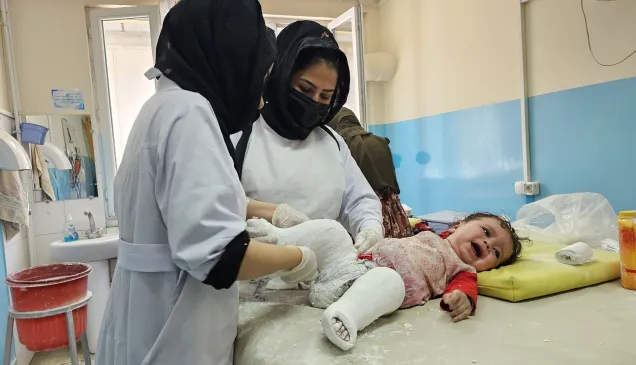Afghanistan: Futsal for empowering children with disabilities

Twelve-year-old Mohammad Ehsan’s eyes are fixed on the ball as he runs across the futsal court. He tackles an opponent, dodges another and dribbles before trying to strike a goal. His excitement and confidence on court are obvious signs of his love for the game. But for Ehsan, who suffers from cerebral palsy, futsal is much more than a game – it is a route to physical healing and social inclusion.
Ehsan’s mother Zareena shares that he could neither walk nor sit nor manage any other simple tasks independently till only a few years ago. In 2018, he was brought for treatment to the physical rehabilitation centre of the International Committee of the Red Cross (ICRC) in Kabul. Before long he started showing signs of improvement and was enrolled in the centre’s futsal initiative.
“He was born with impaired vision and when he was around three years old we noticed he was suffering from numbness in his leg. We took him to several hospitals, but nothing helped until we found out about the ICRC’s centre. Before treatment, even simple tasks like going to the restroom were very difficult for him, but now he does it all with ease,” says Zareena.
Since their home is far from the gymnasium, Ehsan’s mother wakes up at 5 AM to take him to play on Tuesdays, Fridays and Sundays. “I want him to keep progressing,” she says.
Ehsan says he used to walk on his toes when he first enrolled in the rehabilitation programme.
Now, I walk normally. My schoolteacher has also granted permission to let me play and does not mark me absent.
Transformative impact
Launched in 2010, the ICRC’s futsal initiative is focused on the long-term physical rehabilitation and social inclusion of children with disabilities in Afghanistan, particularly those affected by cerebral palsy and polio. It uses sports as a pathway to healing, promoting independence, improving cognitive and social skills and empowering people with disabilities.
While children gain confidence and improve their ability to communicate and socialize with peers, parents and caregivers often report positive changes in the children’s mood, motivation and social relationships.

Mohammad Ehsan, wearing orange jersey, sprints towards the ball during an indoor futsal match in Kabul

Zareena, Ehsan’s mother, has been a great support for her child in his seven-year journey of playing futsal.
Sports as a tool for rehabilitation
As many as 94 children under the age of 14 as well as 46 adults are enrolled in the ICRC’s futsal programme in Kabul, Herat and Mazar-i-Sharif. The programme primarily targets children aged six and above, tailoring activities to match their developmental stage and medical needs.
There are four futsal teams in Kabul, two in Herat and two in Mazar-i-Sharif. The participants are grouped based on age and the type of disability.
While the ICRC manages and funds the programme, organizations such as NOVE Caring Humans, an Italian NGO, have occasionally extended support by providing uniforms and equipment.
Children with disabilities deserve more than just treatment, they deserve joy, friends and the confidence to move forward,
says Shukrullah Zeerak, futsal supervisor at the ICRC’s physical rehabilitation centre in Kabul.
Our futsal initiative has quietly but profoundly reshaped the lives of children with disabilties across Afghanistan. It proves that with empathy, compassion, creativity and community support, even a small game can have big impact.”

Futsal supervisor Shukrullah Zeerak coaching a player in Kabul



